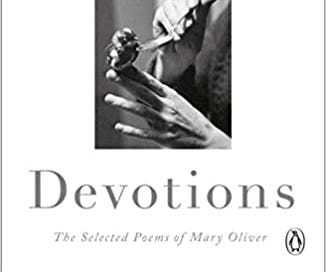the death of Mary Oliver, etc.
Dear friends,
I imagine you're as sad as I am to hear of Mary Oliver's death today. She was the rare poet whose work spoke both to literary types and to people who don't usually read poetry but were drawn in by her gorgeously simple language and imagery. Maybe you first came across her words in the epigraph to Cheryl Strayed's Wild: "Tell me, what is it you plan to do / with your one wild and precious life?" (Here's a recording of her reading that poem, "The Summer Day.") Or the almost equally famous "Wild Geese," which opens with these lines:
You do not have to be good.
You do not have to walk on your knees
for a hundred miles through the desert
repenting.
You only have to let the soft animal of your body
love what it loves.
Tell me about despair, yours, and I will tell you mine.
I reread just about all of Oliver's poems a little over a year ago, when her collection Devotion was published, to write this appreciation of her work for The New Yorker. As its title suggests, this selection of poems highlights her turn toward the sacred, which was always important to her but became more pronounced toward the end of her life. Her way of looking at God is singular and startling. "Lord God, mercy is in your hands, pour / me a little," she writes in "Six Recognitions of the Lord." But I also love her erotic poems, many of which were addressed to the photographer Molly Malone Cook, her partner for more than forty years. Here's one called "A Pretty Song," from her book Thirst, published shortly after Cook's death:
From the complications of loving you
I think there is no end or return.
No answer, no coming out of it.
Which is the only way to love, isn't it?
This isn't a playground, this is
earth, our heaven, for a while.
Therefore I have given precedence
to all my sudden, sullen, dark moods
that hold you in the center of my world.
And I say to my body: grow thinner still.
And I say to my fingers, type me a pretty song.
And I say to my heart: rave on.
This week I reviewed Inheritance, a new memoir by Dani Shapiro, in which Shapiro discovers, via DNA testing, that she isn't biologically related to the man she always thought was her father. It's a complicated story that delves deep into, among other things, the shifting practices around artificial insemination. When Shapiro was conceived, in the early 1960s, it was apparently not unheard of for fertility clinics to mix a donor's sperm with that of the man suffering fertility problems, so that he couldn't be certain that the child produced wasn't biologically his. (Clearly these doctors didn't forsee the advent of at-home DNA testing.) Shapiro's genetic determinism makes me a little uncomfortable—she's pretty convinced of the strength of blood ties. In the end, I think it's love, not genes, that will keep us together. But her book raises a number of profound questions—including whether there are medical practices we accept as normal today that will be seen, just a few decades from now, as unfathomably inhumane.
All best,
Ruth
"No live organism can continue for long to exist sanely under conditions of absolute reality; even larks and katydids are supposed, by some, to dream."—Shirley Jackson, The Haunting of Hill House



